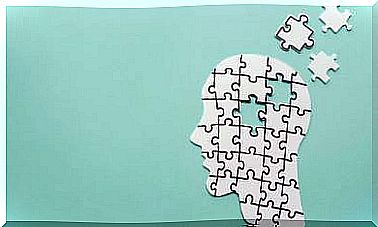Anxiety And Depression When “everything Is Fine “

Many people have the first contact with anxiety and depression when “everything is going well.” They consider that they have stability in many ways and, nevertheless, this symptomatology bursts into their life to remove the established. Feelings of disbelief and bewilderment are common: why now that everything is going well?
In this article you will discover that this sudden onset of anxious and depressive symptoms is something more common than it seems and that, generally, it is due to reasons related to the instigation of important changes. Read on and try to listen to your own message.
When anxiety and depression break into life
The symptoms of depression and anxiety, many times, appear suddenly in the lives of people who suffer from it. So much so that the proper diagnosis is often preceded by a good number of medical visits. The person tries to give a medical explanation to this suffering and medicine, in these cases, is running out of answers at the organic level.
Diagnosing the symptoms of depression and anxiety when “everything is fine” for the patient becomes a complex matter, also for health professionals. Many of these symptoms are diffuse and cover a wide spectrum, especially when the disorder has an abrupt onset.
For example, anxiety can sometimes appear in the form of somatizations, such as headaches, stomach pain or dizziness. Depressive symptoms, in the same way, can begin with a feeling of weakness or motor slowing down. This not so well known face of psychological disorders can delay its diagnosis and, therefore, its correct treatment.

Anxiety and depression when “everything is going well”
Anxiety and depression when “all is well”, along with this spread of symptoms, generates feelings of disbelief towards their actual diagnosis. In many cases, the suffering of a panic attack is confused with the symptoms of a heart attack, for example. The feelings and sensations that are generated are so intense that people are unable to believe how such a thing can, somehow, create their own mind.
Upon receiving a psychological diagnosis, you may feel some relief that it is not an organic disease. However, later on, there may be a swing of emotions between believing and not wanting to believe. This defense mechanism is created by the inability to suddenly assume that it is something psychological and, therefore, the need to dig into the problems buried in the subconscious.
Anxiety and depression when “everything is going well” often require posterior changes. Changes that you weren’t even fully aware of had to be made. And that is a difficult thing to assume. In fact, having anxiety when everything is really going well is not anxiety, but a normal response to a stressor. Anxiety appears despite not having reasons to explain it at first.
Why do I have these symptoms now that everything is fine?
After a more or less extensive period depending on the case, the person receives a diagnosis related to a psychological disorder that explains the anxiety or depressive symptoms and that is when the questions about their origin begin. Here are some common cases that occur in consultation.
- When you achieve what you wanted and yet you feel empty. Sometimes, challenges and expectations are created about getting a certain job, an emotional relationship or other types of goals. Once achieved, that feeling of happiness or fulfillment is expected for having achieved what was longed for for so long. However, and suddenly, doubts begin to invade: is it what you really wanted and what are the vital objectives now? An ambivalent feeling between looking for something new and imposing a fullness that does not come and a background of feeling of emptiness.
- Really, not everything is going well. Sometimes people convince themselves that something is right when it is actually hurting them in some way. For example, it is common for dependent personalities to continue with harmful partners, convincing themselves that they are not. However, anxiety and depression come to tell you that it is not like that in a very forceful and difficult way to turn a deaf ear.
- “The past not trodden on. ” The emotional wounds produced by trauma, in many cases, are encapsulated in an oblivion that tries to protect the psyche from potentially harmful situations. But, anxiety and depression, precisely when “everything is going well” try to take advantage of this present calm to be able to address it. In other words, your mind wisely seeks a moment of stability to heal those past wounds, now that you do have the margin to do so.

Anxiety and depression when “everything is fine”: are you sure?
It is common for anxiety and depression, when “everything is going well” for the patient, have a sudden and intense onset. Sometimes, the symptoms related to somatizations lead to the search for a disease at the organic level, which can lead to a late diagnosis and treatment.
In fact, this intensity and the absence of obvious stressors creates a denial impulse toward a psychological explanation. This is because the mind has created defense mechanisms to avoid unearthing latent conflicts that could harm us. However, anxiety and depression when “everything is going well” can precisely seek that moment of calm in which we have enough resources to deal with these conflicts.
The appearance of these symptoms in that specific moment of calm can be related to the achievement and renewal of vital goals. In the same way, these symptoms can try to unmask certain harmful realities, breaking with the self-belief that “everything is fine. ” Finally, it is common for these symptoms to also occur as a result of certain traumatic experiences in the past.
Either way, the human mind is capable of forgetting and remembering conflicts in order to maintain a balance. He will always try to protect us from what we have suffered. Well, hiding them when we do not have enough resources or making us face them with a notorious strength. In anxiety and depression when “everything is going well”, part of the fight ends when you decide to stop asserting yourself in it and the message is heard.









